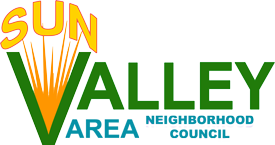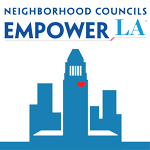SVANC Frequently Asked Questions
The Department of Neighborhood Empowerment (D.O.N.E.) now known as EmpowerLA, was created by the City of Los Angeles in 1999 as a result of Charter Reform, to assist neighborhoods in forming and running neighborhood councils by providing organizing advice, training, and administrative services. City Council offices can also be very helpful in connecting individuals with neighborhood council activity in their area. Many community-based and neighborhood-based organizations such as homeowner’s associations, chambers of commerce, and neighborhood watch groups are also involved in organizing and interacting with neighborhood councils. D.O.N.E. also controls funding of Neighborhood Councils.
Neighborhood councils are meant to promote more public participation in government, making local government more responsive to neighborhood needs.
All neighborhood councils, including the SVANC, will be like “neighborhood lobbyists” and organizers. They will communicate directly with City departments and elected officials and establish local planning and spending priorities as guided by local stakeholders.
Neighborhood Councils give people a voice in the Los Angeles City Council political arena. It is a way for people to get organized and directly involved in their own neighborhoods and in the politics that affect them. Neighborhood Councils are primarily independent, self-governing, and empowered to initiate positive changes within the communities they represent. Community Stakeholders can stay informed by subscribing to the neighborhood council’s email alerts, and through the city’s Early Notification System (ENS), or checking the public notices posted by the neighborhood councils. Stakeholders can give their input at City Council meetings and help to decide about neighborhood issues.
Communities decide for themselves how their neighborhood councils will be structured and then petition the Department of Neighborhood Empowerment for certification (D.O.N.E.). The SVANC has already completed this process and was officially certified in May, 2002.
Stakeholders decide how to run their own Neighborhood Councils. Once the Neighborhood Council is certified, Stakeholders vote for members of the governing body whose responsibility it will be to run meetings, contact members of the City Council, vote on official actions, and keep track of money and how it is used.
Anyone who has an interest in the neighborhood who fits within the Stakeholder definitions as defined by each neighborhood council is called a Stakeholder and can participate in several ways. A Stakeholder is generally anyone who lives, works, or owns property in a Neighborhood Council area. A Stakeholder can also be someone who participates in schools, churches and temples, community and non-profit organizations, block clubs, neighborhood and homeowners associations, apartment, condominium and resident associations, school/parent groups, faith based groups and organizations, senior groups and organizations, youth groups and organizations, chambers of commerce, business improvement districts, service organizations, park advisory boards, boys and girls clubs, cultural groups, environmental groups, neighborhood watch, police advisory board groups, and/or redevelopment action boards.
As a stakeholder one can run for office as a board member, apply for appointment as a board member to fill board vacancies between election cycles, and can always join a neighborhood council committee.
Subscribe to our Newsletters. We send out newsletters that often also contain information on what is going on in Sun Valley and in the LA City. You can subscribe to any or all of the Committees which will include meeting notices and other pertinent information. To subscribe, Click to Subscribe and you can select the committee newsletters you want to receive. You can unsubscribe at any time.




